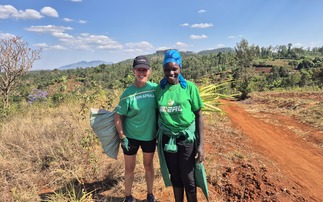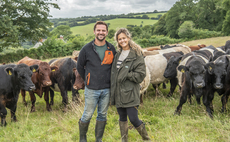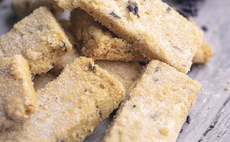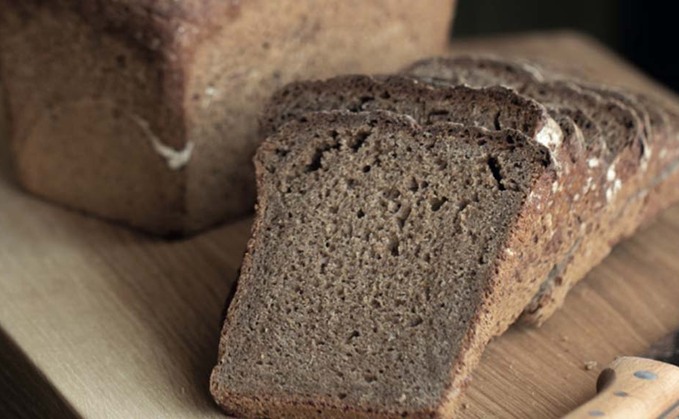
In our new foodie series championing British produce, Jenny Jefferies, author of two award-wining cookbooks will share monthly recipes with Íæż½ã½ã.
The Real Bread Campaign finds and shares ways to make bread better for us, better for our communities and better for the planet. Whether your interest is British farming, local food, community-focussed small enterprises, honest labelling, therapeutic baking, or simply tasty toast, everyone is invited to become a campaign supporter.
Real bread is made without chemical raising agents, so-called processing aids or any other additives and buying loaves from a local, independent real bread bakery is one of the best ways to help the rise of real bread.
The more people who do, the better the chance of that bakery continuing to be a cornerstone of your local community and player in keeping money in the local economy. If the baker/retailer is not giving you the full facts about the loaves you buy, ask questions.
If you are not baking real bread already, start now and if you have children, get them involved as well.
Sourcing ingredients for bread locally has three major advantages:
- Reduction of energy consumption
- Benefit to the local economy
- Sustainability of supply
The shorter the distance that grain has to travel to be milled, flour travels to be baked and loaves travel to the consumer, the less the energy consumed in transport. As much of the transportation at each of these stages is currently done using fossil fuels, any reduction will bring down carbon emissions. Local supply chains help to generate local employment and money that is spent with local suppliers is more likely to be re-invested locally, which is of benefit to the economy of the local community. Local supplies and stores of grain are much more resilient to interruption by factors such as adverse weather conditions, industrial action and fuel shortages, which have more opportunities to have impact on transport systems in extended chains.
Andrew Whitley, the co-founder of The Real Bread Campaign and Scotland The Bread - a collaborative project to grow better grain and bake better bread with the common purposes of nourishment, sustainability and food sovereignty - says that sourdough rye bread is one of the easiest, tastiest and most digestible breads in the world. If you havent got a sourdough starter on the go, its easy to make one from organic rye flour and water, but it does take four or five days to establish a stable fermentation. You can order an authentic Bread Matters rye sourdough culture, as well as books with the essential know-how, from the Scotland The Bread website (scotlandthebread.org).
There is also a huge wealth of information about Real Bread on www.realbreadcampaign.org and you can follow them @RealBreadCampaign on Instagram and Facebook, and @RealBread on Twitter.
Andrews story and recipe for Sourdough Rye Bread is featured in my book For The Love Of The Land II published by Meze Publishing and is also shared below exclusively for the Íæż½ã½ã.
Follow Jenny @jennyljefferies
method
PREPARATION TIME: 2 DAYS | COOKING TIME: 40 MINUTES | MAKES 1 LOAF
Ingredients:
For the production sourdough
80g sourdough starter (from the fridge)
250g wholemeal rye flour (such as Scotland The Bread Evo Rye flour)
420g water at 40c
For the final dough
650g production sourdough* 320g wholemeal rye flour 7g sea salt
Method:
For the production sourdough
Mix all the ingredients together thoroughly (with your hand, ideally), then cover and leave to ferment in a warm place for 24 hours.
For the final dough
*There should be a wee bit of the production sourdough left over; keep it in the fridge for your next bake.
Mix all the ingredients together and then shape the dough with a little water on your hands and the worktop. This should produce a consistency that is firm enough to control the final rise and allow acidity to develop.
Prove the dough at room temperature (not too warm) for 3-5 hours (maybe a bit longer if your starter is young). Turn on your oven about 30 minutes before you reckon the dough is fully risen.
Bake the loaf at 210c for about 40 minutes. Try to leave it for a day before cutting thinly; the flavour will develop and the bread should be a little less sticky and even more digestible.






